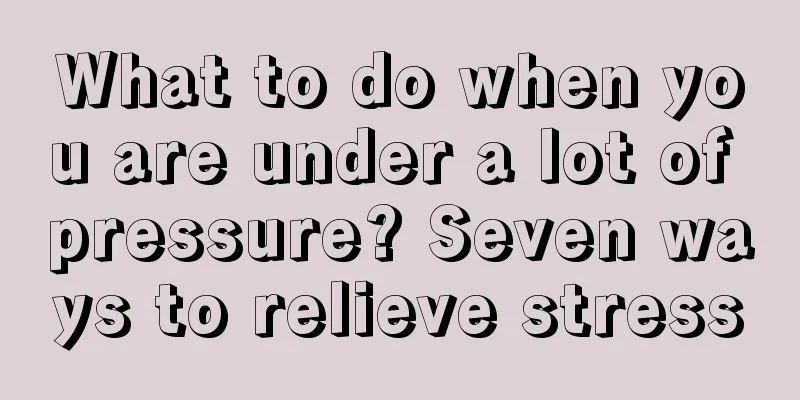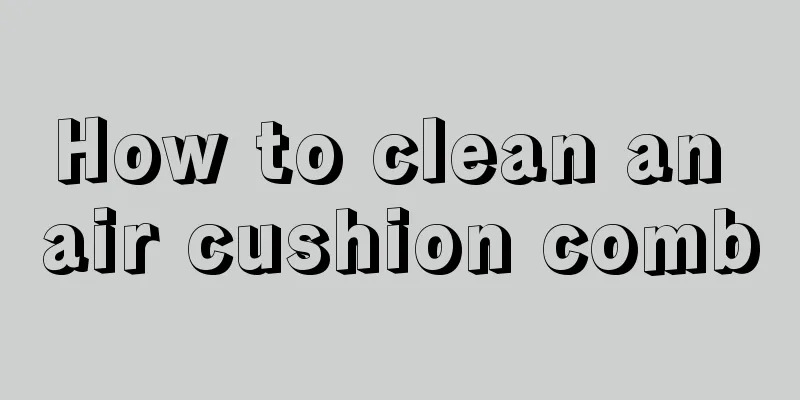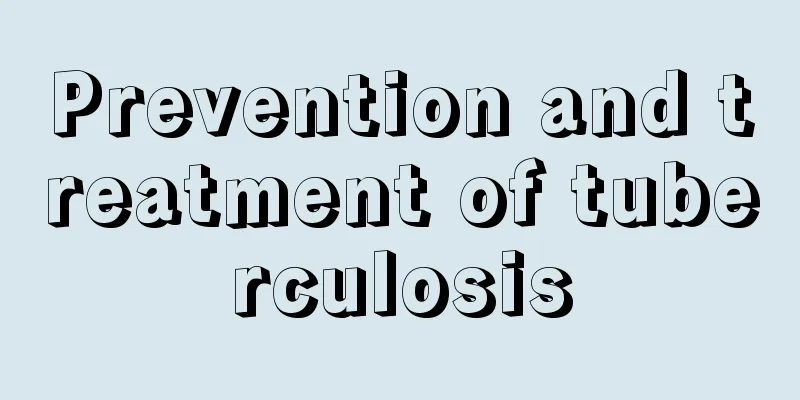What to do when you are under a lot of pressure? Seven ways to relieve stress

|
Although modern society has brought many benefits to people's lives and made people's lives more comfortable, it also has a big disadvantage, which is too much pressure. As the pace of society quickens, the pressure of people's lives and work has become heavier invisibly. This makes some people unable to bear such pressure, and causes various discomforts. What should we do when we are under great pressure? In fact, the main reason why people like these cannot withstand pressure is that they do not know how to release or relieve pressure. Although modern society is stressful, we can reduce the stress we feel if we find good ways to regulate it. For example, after get off work, you can go to a leisure place to vent, drink with friends, play cards, etc. What to do when you are under great pressure? Ways to relieve stress Although there are many people around us who are under heavy pressure, there are also people who can always release stress easily and devote themselves to work and life with the best attitude. Experts found that these "stress-free" people almost all have the following characteristics: 1. Be good at overall planning and have everything under control. This feeling itself can relieve stress very well. Accepting the things you face selectively rather than passively may make people feel a lot more relaxed. The best way is to make a list according to the importance of things. This can not only provide an overall plan, but also help break down a seemingly disorganized pile of problems into several specific small things, making it much easier to deal with them one by one. As you complete one item, cross it off your list, and the sense of accomplishment you’ll get from doing so will be enough to motivate you to continue doing so. 2. Talk as soon as possible when you are confused. When "stress-free" people feel confused, difficult or sad, they will always seek help from friends without any reservation. When things become very difficult or you are in a state of anxiety, confiding in a friend, just the act of talking, can bring relief, and you may even get some good advice. 3. Try to stay optimistic. “Stress-free” people firmly believe that things will always develop in the desired direction. So, always imagine the best outcome with the most optimistic attitude. Everything that needs to be done is already in progress, and even if there is trouble, we will definitely readjust the status quo as quickly as possible. 4. Never procrastinate. Don’t put off until tomorrow what can be done today, and don’t put off until several hours later what can be done immediately. Because many things are left undone, which in itself can cause tremendous psychological pressure. 5. Good at assigning tasks. “Stress-free” people never think that they have to do everything themselves. When it comes to assigning tasks, many people think that it is the job of the boss to his subordinates. In fact, in addition to assigning tasks to subordinates, you can also assign them to your colleagues or partners, or to other service agencies. 6. Take deep breaths every day. Daily deep breathing can reduce the level of perceived stress by half: straighten your back, relax your shoulders, inhale air deeply into your lungs through your nose, concentrate on feeling the air penetrate into every cell, then exhale with all your strength, imagining that the pressure in your body is discharged out of the body along with the airflow. 7. Always fantasize about a bright future and encourage yourself with the bright future after overcoming this difficulty. “Will I still regret this in a month?” “Will I still blame myself for missing this meeting in a week?” “Will I still be mad at my colleague for embarrassing me five minutes from now?” These assumptions that push situations into the future will surely gradually relieve the pressure in front of you. 8. Know when to say “no” When “pressure-free” people feel they are unable to do so, they will firmly say “no”. "I'd love to help you, but I have other things to do." When they are unable to do so or are unable to do anything, "stress-free" people will not try to show off their abilities. When you reject someone, you don't have to explain the reason clearly. 9. Have your own way of entertainment. “Stress-free” people can always arrange some time to do things that are not related to work but have always wanted to do. There are various ways of entertainment, but the effects are very similar: to relieve stress, appreciate the beautiful and enjoyable content in life, and thus restore passion and love for life and work. The second method to relieve stress is work pressure, interpersonal pressure, emotional pressure, etc. Modern people carry a lot of pressure on their backs. They live busy lives and don’t sleep well. Their physical and mental conditions are in danger. As a result, their emotions and interpersonal relationships are affected, and the vicious cycle continues. Stress can weaken the immune system, and many diseases can become more serious due to stress. Methods that can help you relieve stress: (1) Abdominal breathing: Take deep breaths, and the slower the better. When you inhale, your stomach will slowly swell up. Hold it for 5 seconds before exhaling. When you exhale, your stomach will slowly sink down. Repeat this several times. This is a common way of relieving stress in the East and the West. Qigong, Yu Ka, etc. all use this abdominal breathing method. (ii) Press the tongue against the roof of the mouth: Take time to relax your body and mind as much as possible, from the throat, heart, and stomach down to the Dantian, which is the so-called focusing on the Dantian. You can sit cross-legged or lie down, and the main thing is to relax your whole body, especially your shoulders. Try to relieve all the stress. (III) Foot soaking: Usually a lot of acidic substances accumulate on the soles of our feet. Foot soaking can not only open up the blood and meridians, eliminate pain, but also prolong life and strengthen the body. Except for before and after meals, foot soaking is suitable for all seasons and for the elderly, children, pregnant women, and the sick. (IV) Think about good things more often - maintain an optimistic attitude: Stress and tension mainly come from our psychological effects. So, it's important to try to change your mindset. Dress yourself up beautifully every day before going out... It's okay to be gloomy occasionally, believe that the sun will still rise tomorrow, maintain an optimistic attitude, many things are not as serious as you think! Method three to relieve stress - a ten-minute method to relieve stress. The exam has begun, and there is a lot of pressure on you. Don't be afraid, don't worry, there is always sunshine after the rain. No matter what problems you have, you should find a quiet place to avoid stress, because continuous mental stress is not good for the heart and may even cause arterial infarction. The latest data shows that stress can cause a sharp mutation in stress response hormones in the blood, thereby weakening the body's immunity and making it difficult to resist infection. All diseases, including heartburn, asthma, herpes, cancer, and even memory loss are related to stress. Haha, isn’t it a bit scary? Although life is stressful, you don't have to be anxious. 1. Sit quietly and rest. Just sit quietly for 5-10 minutes a day and do nothing. Focus your energy on the sounds around you, on your own feelings, and whether you feel uncomfortable anywhere. When you meditate, your heart rate slows down and your blood pressure drops, which means that the symptoms of stress are alleviated and you are able to control the situation. When the situation is out of control, that's when the pressure is greatest. We cannot change the past, but we can grasp the present. 2. Laugh out loud. Hold something that can make you laugh, such as a joke book, or recall a comedy movie you have watched... When you laugh from the bottom of your heart, the stress-causing hormones cortisone and adrenaline in your body begin to decrease, and your immunity is enhanced. This effect lasts for 24 hours. Interestingly, the effect begins when you anticipate that you are about to laugh. 3. Listen to music When you take on an important task, listen to any melody you like. If music isn't allowed in your workplace, take a small radio or a tape recorder with headphones when you leave home. An experiment was conducted in Australia: two groups of college students were asked to prepare a report. One group worked very quietly, and the other group played music. Both groups of college students worked very nervously. The college students who prepared the report quietly had increased blood pressure and faster pulse, while those who worked while listening to music had stable blood pressure and pulse. 4. Think more about good things. Take some time, even just 5 minutes, to concentrate on thinking about the people or things that are dear to you. You can also imagine a picture of a "quiet vacation". Even a few highly self-critical words or sentences can be effective. Thinking positive thoughts can prevent the changes in your body that create stress. We often feel mentally burdened because we cannot get rid of negative emotions: dissatisfaction, grievance, worry, anger, etc. If you think more about the people you like and the things that make you happy, the effect will be completely different. 5. Take a walk. Stand up from your desk or sofa and walk for just a few minutes. Experts confirm that walking can help calm the mind. It was observed that a group of volunteers were responsible for taking care of the mentally handicapped elderly. This is a very stressful job, but the volunteers who took a walk four times a week were less anxious, slept much better, and maintained normal blood pressure. It doesn’t matter if you can’t spare half an hour for a walk every day. When you feel nervous, walking for 5 to 10 minutes will also have obvious effects. Walking for a few minutes as soon as you start to feel nervous has the greatest calming effect. 6. Slow down your breathing. Slow down your breathing for 5 minutes. Take deep breaths with your abdomen about 6 times per minute. That is, inhale for 5 seconds and exhale for 5 seconds. Usually, when you are under stress, your breathing is fast and shallow. Just a few deep breaths can help you straighten your shoulders and relax your muscles. The breathing rhythm of "5 seconds inhale - 5 seconds exhale" is consistent with the 10-second natural cycle of blood pressure fluctuations. This synchronization not only calms people down quickly, but also benefits the health of the cardiovascular system. If you can't even squeeze out this little time, experts also suggest drawing a white dot on your watch or clock. Take 2 to 3 deep breaths as your gaze falls on the white dot. You'll be surprised how quickly you calm down. 7. Get up easily Before lying down to sleep at night or before waking up in the morning, spend 5 minutes in bed to relax your whole body: first tighten your toes, then gradually relax. Next move to the soles of the feet, calves, thighs, buttocks, up to the upper body and facial muscles. If you wake up nervous in the morning, then you can't expect to relax for the rest of the day. If you keep thinking about problems when you lie down to sleep, it will affect your sleep quality, which will increase your mental burden. Therefore, it is necessary to spend 5 minutes at the beginning and end of each day to relax your whole body. Method 4 to relieve stress: Modern people are under great pressure, including work pressure, study pressure, life pressure, and pressure from all aspects. The pressure from all aspects makes modern people at a loss. I have summarized some ways to relieve stress in my daily work and study. I would like to share them with you, hoping that they can provide some help and inspiration to you. 1. Exercise method. Sometimes we feel stressed and have no mood to do anything. We even can’t sleep. This is a terrible signal, which will lead to insomnia over time. Exercise is the best way to solve such problems. Force yourself to participate in some physical exercise to increase your sense of fatigue, so that it will be easy to fall asleep. Over time, it will relieve stress and promote sleep. 2. Tourism Law. Now is a good season for traveling, so this method is most suitable for solving the problem of high stress for friends. Spring is back and everything comes to life. All living things can bring us endless motivation and relieve stress. 3. Chat method. This type of method is suitable for people who are under great pressure but have plenty of energy. The chatting mentioned here can be chatting with friends or chatting online. The latter may be more suitable for modern people. Some things that are difficult to express in person can be vented to netizens online. 4. Posting method. If you have an unresolved issue in your heart, you can post it in a forum and ask netizens to help you solve it. This is a good way to relieve stress. Method 5 to relieve stress: The heavy burden of life and setbacks at work will bring endless troubles to middle-aged people, and these troubles will cause physical discomfort. For people who are good at regulating their emotions, the symptoms of physical and mental discomfort can be alleviated or disappear after a period of time. However, if they cannot regulate themselves, it will seriously endanger the health of middle-aged people. First of all, we must face reality and adapt to the environment. Only in this way can we exert our greatest ability to transform the environment so that the external reality conforms to our subjective wishes. At the same time, when it is beyond our ability, we can choose other goals or reselect methods to adapt to the actual environment. Secondly, middle-aged people should be kind to others, be willing to interact with others, and establish good relationships with others. Communication between people not only helps us get help and information, but also allows us to vent our pain and joy, thus motivating us to make continuous progress. In addition, middle-aged people need to strike a balance between hard work and active and meaningful rest. It is reported that about 60% (about 700 million) of people in my country are in sub-health status, and of course middle-aged people account for a considerable proportion of them. Although there are many causes of sub-health, excessive fatigue remains the primary cause. The greatest significance of work is not only to obtain material rewards from it, but more importantly, work enables people to express themselves in a group and realize their personal value. The pace of life in modern society is fast, and work is busy and mechanical. Many people are under long-term stress and are not good at rest and adjustment. Many people don’t know how to spend their free days, so they just sleep in or watch TV. Some people try their best to entertain themselves when they have a break, or play cards all night, or dance all night, or watch movies all night. As a result, their days off are more tiring and busier than when they are working. We should arrange our leisure time reasonably, and change the way we spend it often, such as going on an outing, getting together, visiting friends, or visiting exhibitions, etc., to make our leisure life rich and colorful, and truly become a chance to restore physical strength, adjust mental power, increase knowledge, and gain health. Method 6 to relieve stress Everyone inevitably feels stress. One is given by oneself, and the other is requested by others. Self-created stress comes primarily from expectations. Everyone sets goals and makes plans for themselves. Stress is the spontaneous psychological preparation of the body and mind for external stimuli and established goals. Appropriate tension and pressure are necessary to concentrate in order to complete tasks and achieve goals. If the goals are appropriate, the planning is strong, and the work pace keeps up with the plan requirements, the pressure will be reduced. Sometimes I even think that pressure comes from innovation and challenges. Although daily routine work may make it easier to achieve goals due to interface specifications and division of labor and cooperation, people also feel less stressed. Lack of planning, uncertain goals, or excessive pressure can cause adverse effects on your body and mind. Other people's requests are actually tasks. The task needs to be completed within a certain time and needs to be combined with certain effects, which also puts pressure on people. It is impossible and undesirable to be completely stress-free. Appropriate stress is good for health and is also beneficial to human survival and development. But everything should be done in moderation. Appropriate stress can keep people's nerves at a certain level of tension, stimulating them to constantly work hard to adjust/enrich themselves and transform the world. Too much stress not only makes people overly nervous, but also affects their health. Everyone in the world always has to bear various kinds of pressure. It is impossible to be completely free from stress, and it is not conducive to human growth. However, excessive stress can hinder a person's mental health, accumulate negative emotions, and even cause suicidal impulses. Stress release is a necessary behavior. Learning to release stress effectively is a sign of learning skills for physical and mental health. There are many ways to release stress, such as deep breathing, talking, sleeping, music relaxation, traveling, baby kissing, hugging, improving diet, shouting, limited destruction, appropriate crying, writing a diary, seeing a psychologist, attention diversion, hot spring (water) bath, etc. The pressure cannot be suppressed. It is wrong to try to forget. Trying to numb the body and mind through hard work is not advisable either. This requires finding appropriate ways and means. Seven ways to relieve stress 1. Create a balance—sometimes stress can be good for you. Healthy stress means that it keeps people in a state between relaxation and activity. Without enough stress, you will become uninterested and lose your fighting spirit, which is not a good state. But if the pressure is too great, you'll bounce against the hospital wall like a coiled spring. 2. Regularly assess your own and your colleagues’ stress levels – this can help you address problems early and also help relieve stress among your colleagues. 3. Learn stress relief methods as a skill - concentrate on studying the problems you encounter in your daily work, get suggestions for solving these problems, and experiment to find out which methods work better for you. 4. Make plans to relieve stress in advance - many stress-causing events are difficult to predict, but for those situations that you can anticipate in advance, you can take relief measures early. 5. Learn reflective practice—recognize that stress is not a sign of weakness, and be good at taking breaks and reflecting on stressful events. Your manager also has a responsibility to support you. Nurses often fail to take good care of themselves, but stress management means that nurses need to learn how to take care of themselves. What to do when you are under a lot of pressure? Of course, you should find ways to relieve the pressure. Never let yourself lose your fighting spirit due to the pressure. You should learn to relieve pressure, turn pressure into motivation, and let motivation become the best way to support our life and work. Especially as modern young people, we must learn to relieve stress so that we can become the pillars of the new generation. |
<<: Smiling depression is more harmful than ordinary depression. How to avoid smiling depression?
>>: How to treat insomnia? Some tips for treating insomnia
Recommend
How to treat bed-wetting in adults at night?
In daily life, many people may have had such an e...
How many times a day should I wash my nose with saline for rhinitis
Rhinitis is caused by viruses, bacteria and some ...
Can I have sex when I am 11 weeks pregnant?
There are many things that women need to pay atte...
Taboos and efficacy of drinking Artemisia argyi soaked in water
Artemisia white is a natural green food and also ...
What vaccines are likely to cause fever?
Many babies will develop many uncomfortable sympt...
Is oxygen inhalation useful for fetal hypoxia?
The fetus's body develops very rapidly, which...
Is B-ultrasound accurate in diagnosing liver cancer? How to diagnose liver cancer in its early stages?
Many people are busy with work and often neglect ...
Clinical manifestations of hypophosphatemia
Hypophosphatemia is a common disease, which is ge...
What to eat in the late stage of liver cancer? Introduction to dietary principles for late stage liver cancer
Diet is an important aspect of our life. If we do...
What are the common causes of lung cancer?
The cause of lung cancer is still not completely ...
What are the dietary precautions for patients with gastric cancer? Pay attention to these
Gastric cancer is a disease that everyone is fami...
How to effectively treat cervical congestion
Cervical congestion is a common manifestation of ...
Watch out for 5 diseases when drooling while sleeping
Some people have the habit of drooling when they ...
How much do you know about the harm of liver cancer? Liver cancer has five major harms to the body
Liver cancer is a disease that we cannot ignore. ...
Advantages and disadvantages of ramie fabric
Many people may not be familiar with ramie fabric...









